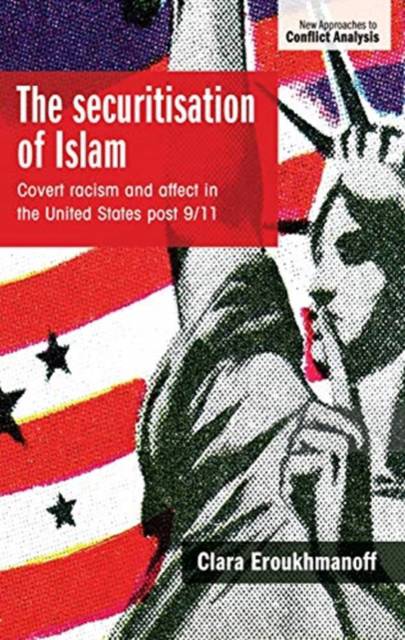
- Retrait gratuit dans votre magasin Club
- 7.000.000 titres dans notre catalogue
- Payer en toute sécurité
- Toujours un magasin près de chez vous
- Retrait gratuit dans votre magasin Club
- 7.000.000 titres dans notre catalogue
- Payer en toute sécurité
- Toujours un magasin près de chez vous
The Securitisation of Islam
Covert Racism and Affect in the United States Post-9/11
Clara Eroukhmanoff
118,95 €
+ 237 points
Description
This book is a timely analysis of the securitisation of Islam since 9/11 and presents an original study of Islamophobia and White fragility in a context where far-right extremism is rising in Europe and the US.
It unpacks how it is possible for various U.S. governments to impose discriminatory counterterrorism measures on Muslim communities whilst simultaneously declaring they are 'not racist'. Eroukhmanoff addresses these contradictions by linking the Islamic terrorism discourse with covert racism and by revealing the covert ways in which this securitisation is made. Furthermore it offers a critique of the 'soft' and 'hard' approaches to counterterrorism and advances an alternative way to think of (counter)-radicalisation by introducing a quantum perspective. Drawing on the 'affective turn', Eroukhmanoff argues that covert securitisations remove the emotional experience that usually invest the act of securitisation and that this de-affectivisation allows White American subjects to be constructed as innocent and threatened whilst constructing Muslim subjects as potential terrorists and thus as mere sites of securitisation.Spécifications
Parties prenantes
- Auteur(s) :
- Editeur:
Contenu
- Nombre de pages :
- 192
- Langue:
- Anglais
- Collection :
Caractéristiques
- EAN:
- 9781526128942
- Date de parution :
- 22-10-19
- Format:
- Livre relié
- Format numérique:
- Genaaid
- Dimensions :
- 157 mm x 236 mm
- Poids :
- 408 g







